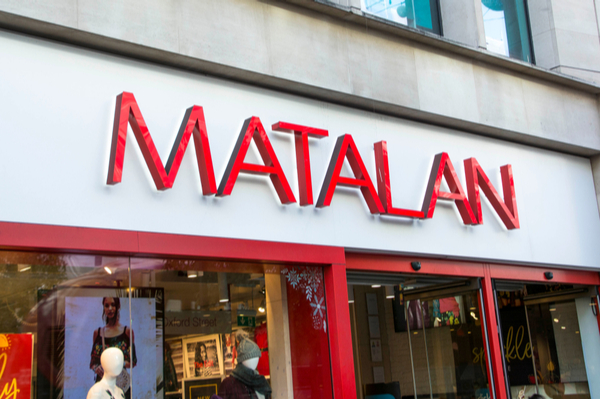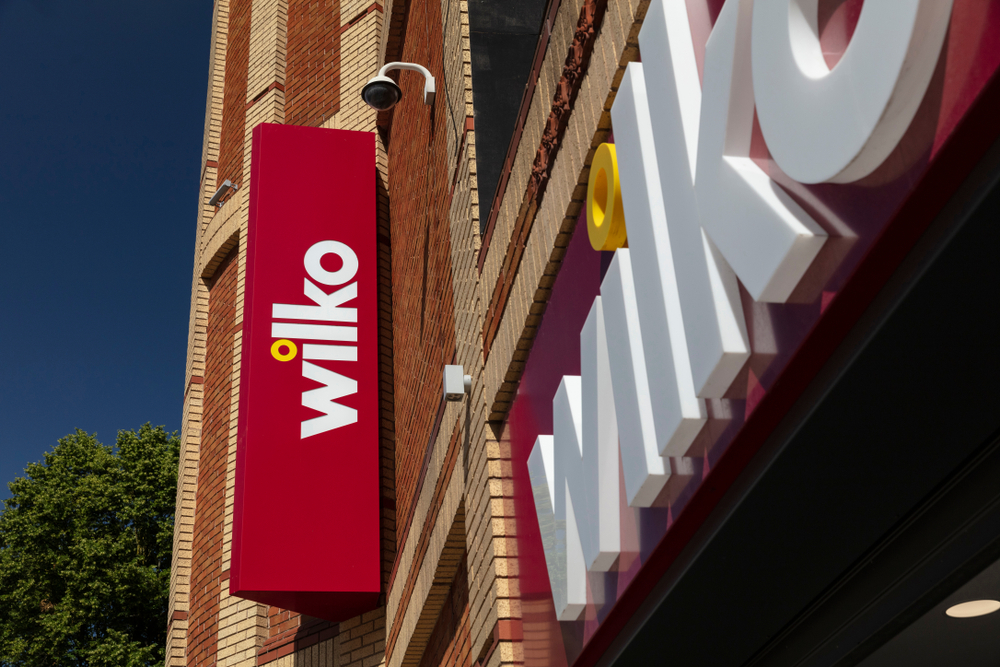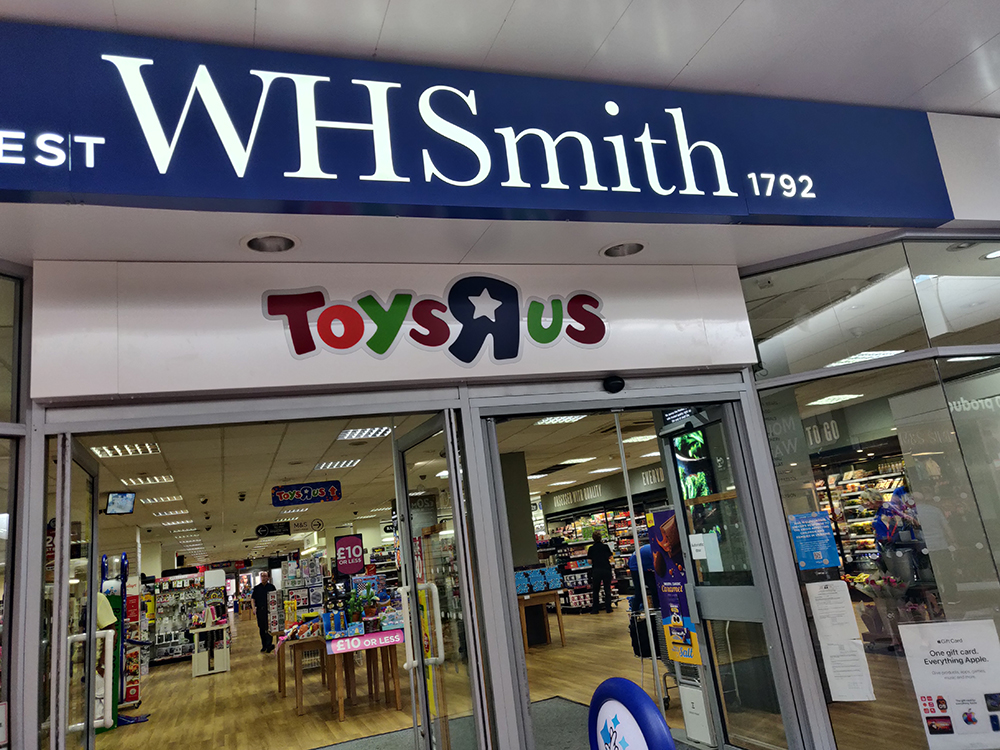Discount retailer Wilko yesterday secured emergency funding to continue trading after an “incredibly difficult period”.
Hilco, an investor specialising in distress situation that also owns Homebase and Cath Hidston, provided a £40m asset-based credit facility.
According to documents filed at Companies House, Hilco has been given security over much of Wilko’s intellectual property, including its logo, marketing slogans and various own-label product names.
The retailer, which reported a £36.8 million loss in its year to 29 January 2022, had previously warned that if if trading deteriorated further and it did not secure access to additional funding, it could run out of cash.
Wilko, which has already sold and leased back its Nottinghamshire warehouse to raise additional funds, said the facility would enable it “to significantly increase financial flexibility”.
Wilko is not the only retailer grappling to regain their financial footing following a turbulent year of waning consumer demand and volatile stocking levels.
Retail Gazette explores what options are available to retailers in distress and why some businesses are turning to asset-based loans.
Short term fix
There are several short-term fixes that can provide much needed cash for retailers.
A simple solution for many has been to discount stock in the hope of driving sales.
This is an approach that fashion retailer Joules took last year in an attempt to recover from challenges around rising freight costs, stock delays and labour shortages.
However, the move hits profit margins and can also damage a brand’s reputation, making it harder to sell at full price longer term. This is what happened in Joules’ case, which contributed to its falling into administration in November before it was acquired by Next.

GlobalData retail senior analyst Emily Salter tells Retail Gazette: “Joules’ recent troubles are in stark contrast to its pre-pandemic performance, as it always outperformed the UK clothing and footwear market due to its loyal shopper base and distinctive product handwriting, but frequent discounting has damaged its brand equity.”
Some businesses have taken a more radical approach to drum up cash and have sold off assets.
Department store Fenwick opted to sell its famous Bond Street store late last year to secure a “strong financial footing” following a challenging few years.
The building, which has been trading since 1891, was sold to Lazari Investments in December and is understood to have fetched £430 million.
Chief executive John Edgar says the sale will put the luxury retailer in a “much stronger position” to grow its online business.
While Fenwick will exit the Bond Street store in 2024, other retailers have opted to sell and lease back units as Wilko did when it sold and lease backed its distribution centre in Worksop to DHL in November, which released £48 million allowing the retailer to repay its revolving credit facility.

Former Ocado Group finance director Vineta Bajaj points out that the timing for retailers looking to sell assets is “not great” with property valuations likely to be lower than usual due to rising inflationary pressures.
‘Costly’ traditional funding
The first port of call for retailers in need of cash is to turn to existing lenders to agree an extension of credit.
However, economic downturns such as the current cost-of-living crisis reduce lenders’ risk appetite, terms of agreement and borrowing costs.
Bajaj says the environment is “really tough” for those looking for additional financing.
Lenders, such as banks and equity firms, will weigh up other risks in the market including political uncertainty and trade conditions to determine its return on investment.
Furthermore, in difficult periods, the specific terms of such loan agreements can become “stricter” even as far as institutional investors setting “limitations on how the cash is spent” as they look for more collateral, says Bajaj.
This can include limiting how much capital expenditure retailers can spend each month, requesting monthly bank statements, and stopping sale and leasebacks.
However, PwC debt and advisory partner Zelf Hussain insists that lenders’ appetite remains healthy in the current market with favourable terms still available.
“There is still an ability to raise more money or replace existing funding,” he says. “This is because there is still quite a lot of liquidity in the market and appetite to lend.”
One finance expert points out that the retailers that have made it through the pandemic have proven their ability to endure periodic downturns, something that lenders will look favourably towards.
Despite the willingness to lend, retailers will have to evaluate the true price of taking this avenue especially with the instability of interest rates at the moment.
Morrisons, for example, could see its borrowing costs increase by £95 million as interest rates continue to rise with each 0.25 percentage-point increase in the Bank of England’s lending rate costing the supermarket an additional £7 million to £8 million.
Structured lending options
With traditional routes being more costly, some retailers are looking beyond banks to inject cash into the business.
Matalan secured a £60 million funding solution with specialist lender Bantry Bay to refinance bank debt and provide working capital for the business last year.

Similarly, Wilko turned to Hilco and was in talks with a range of alternative lenders after it was unable to agree an extension of its revolving credit facility due to interest rate hikes.
Retailers are also exploring asset-based lending as an alternative financing option.
This is where businesses are able to borrow against its assets, most commonly stock, for additional funding.
The finance expert says that asset-based lending is “frowned upon” in the UK, however, it can be a better way to borrow for some businesses.
“It can be a cheaper way to borrow as your borrowing base goes up and down which can increase your access to debt. Some businesses also find the operational discipline beneficial as you can only lend against the value of your pool of assets.”
PwC’s Hussain says this type of loan agreement is “well structured” for retailers as it offers flexibility to mirror the seasonal peaks and troughs of sales.
This source of funding is slowly increasing in popularity among UK retailers and is used by the likes of Superdry.
Last month, the retailer agreed a new loan including a £30m three-year deal with specialist lender Bantry Bay Capital, a firm backed by the hedge fund Elliott Advisers in order to repay its pre-existing £70 million asset-based loan agreement before it expired this month.

The retailer admitted it had to pay a much higher interest rate than on its £70m facility. The loan was priced at 7.5 percentage points above the Bank of England’s benchmark overnight rate.
However, the current volatile trading environment is making asset-based lending more challenging.
Argyll Debt Advisory founder Alistair Lee says if a retailer is struggling to shift stock, this may impact the terms and valuation of the loan agreement asset-based lenders will offer.
“One of the things we see in the marketplace at the moment is some businesses that have got their warehouses full are having to cancel orders or tell suppliers to hold on to orders longer because they don’t have space for them,” he says.
“This then reflects into the lending market with lenders wondering about what the value of the stock is and whether it will be worth as much as a normal level of stock would be.”
Retailers also have the option to borrow against their brand, as Wilko has done, which Hussain says is an “untapped asset”.
Lee says using the brand as an asset on top of stock can provide “extra headroom and availability” that “might make the difference between being able to run the business and not”.
“But it’s fair to say lenders are more wary of lending against brand value because it’s very subjective as to what value is,” he says.
While asset-based lending may appear to be advantageous for retailers seeking cost-effective funding, if the financial situation worsens “those lenders might be slightly more aggressive in terms of enforcement than high street lenders”, says Lee.
Tougher terms aside, there are many alternative avenues available for retailers unable to gain headroom with banks and existing lenders.
A raft of established retailers such as Wilko, Superdry and Matalan have all secured funds through bespoke structured lending option. As the market uncertainty looks set to continue in 2023, expect more retailers to follow suit and resort to alternative funding models.
Click here to sign up to Retail Gazette‘s free daily email newsletter

















